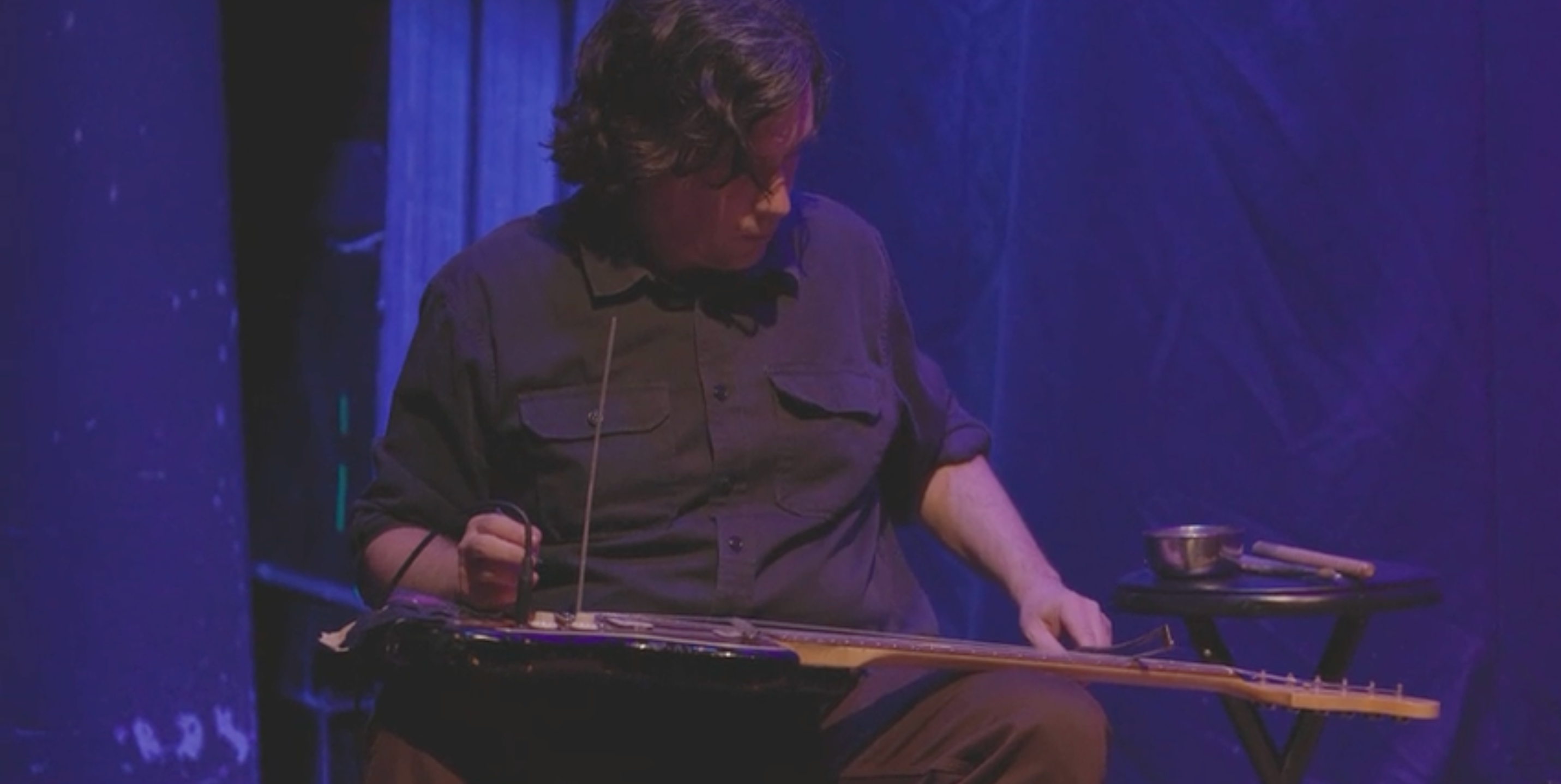SOUND TYPE: Bill Nace

As epithets go, the designation of a “musician’s musician” always feels a bit pat—who else is really listening these days? But logically, I like the formula—not as peer review or a kind of in-group signalling, but as a way to cite a player in the same breath as their larger constellation. Suppose an improviser’s improviser, then; someone who reads, and plays, the room.
Bill Nace is such a musician in spades—not just versatile but multi-form, informal; refuting a contemporary mania for genre at its gestural root. That’s not to say that Nace’s playing lacks reference, but that its markers largely evade the typecasting by which even outsiders stake their reputation. “Improvised music feels and sounds like a genre right now,” he laments. “It doesn’t feel like there are cracks in there.”
Then Nace’s close attention to the material of his instrument—principally electric guitar—scours for those cracks and catches where the music really happens, not by rote but as a true discovery. Taking a toolkit to the strings, Nace’s playing extracts incidental melody from texture, and a grand harmonic architecture rises from an interferent hum as he operates. “People work in different ways. I don’t want to think about what the meaning is,” he says. “I want to have an experience, and hopefully an experience that I’m not expecting. The meaning is inherent in the act.”
Inside the din, sound seeks its own associations. A Bill Nace solo might enlist peals of industrial machinery, or the patter of ghosts in an adjacent room. Nace’s accompaniment, for that matter, might become the room in which collaborators place discrete sonic events. In a recent meeting with Evan Parker, Nace’s taishōgoto—a compact, autoharp-like instrument—casts a saturating net beneath Parker’s harmonic flails. With reedist Tamio Shiraishi, whose extreme altissimo cleans and widens the ears, Nace makes a turbulent ensemble of himself, providing ample space for exit and re-entry.
Nace’s ability to make enormous sounds from the smallest of events transforms the spaces of these meetings, too, and there’s a communal basis to this rapport. “It's not just about the music,” Nace says, and to hear him speak about his relationship to DIY is refreshing. (His label, Open Mouth Records, has operated for more than twenty years, beginning with a series of cult CDRs by his duo with Chris Corsano.) “It’s about how the music is delivered, the other bands you're playing with, how you’re setting up shows and carrying yourself, all of that stuff.”
This social insight is inseparable from the music it sustains, and further evidence of Nace’s pedigree in an affably connected underground. Here is another facet of the “artist’s artist”; whose interest, as in any good ensemble, is the selfless sound that everybody serves. This modesty extends to all those in attendance, too. As Nace insists, “there needs to be breathing room for people to come to the thing themselves instead of being told how to think about it.” With that, I’ll let the music breathe.
Written by Cam Scott (SOUND TYPE Writer's Cohort '24)